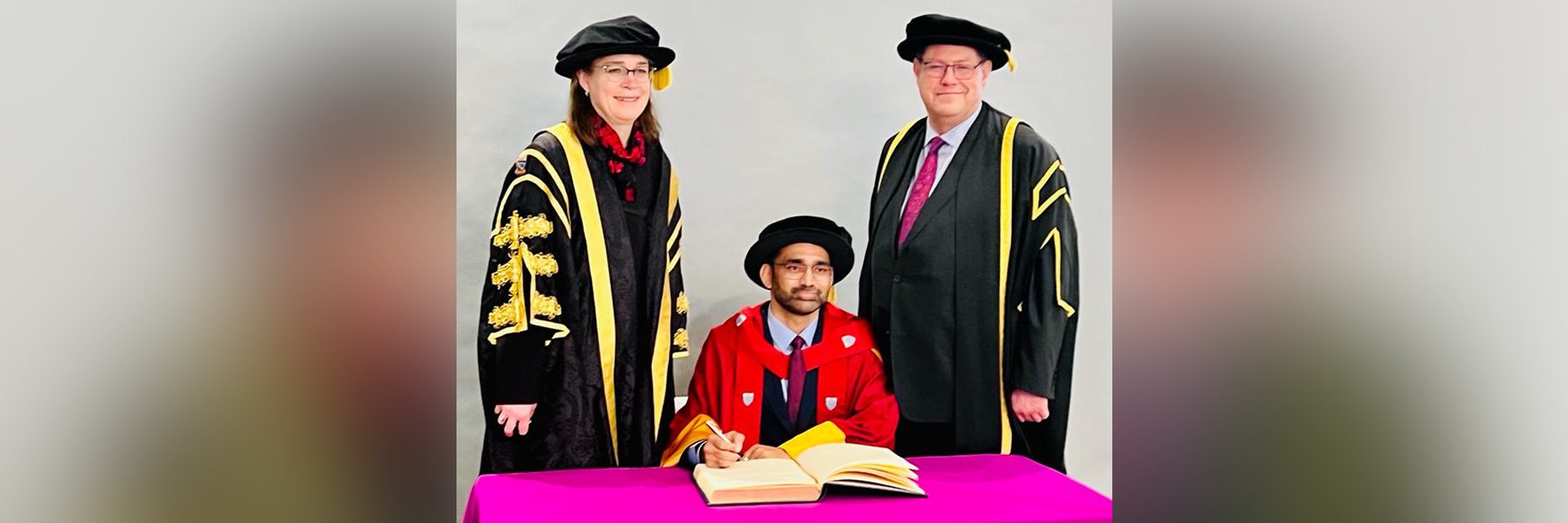(June 3, 2022) A “true-blue Mumbaikar” by his own description, Schwarzman Scholar and public health expert Dr Namit Choksi sees himself running for office one day, bridging gaps in healthcare access and policy. With an MD from India, he went on to pursue his medical clerkships at Johns Hopkins, did a master’s degree in public health from Harvard and graduated from Tsinghua University as a Schwarzman Scholar in 2019. At Harvard, he helped launch a low-cost medical device in India, which received recognition from the World Bank. In 2020 and 2021, Namit worked closely with Indian government and stayed in touch with the WHO Chief Scientist Dr Soumya Swaminathan while serving on the front lines of the pandemic.
Now heading India and APAC growth strategy for Perfect Day, a US-based startup, Namit’s career has had its crests and troughs. “Eventually, if you’re honest, you will shine,” he says, in an interview with Global Indian. “My experiences have shaped me. If it wasn’t for them, I would have been a doctor sitting in some corner of India.”
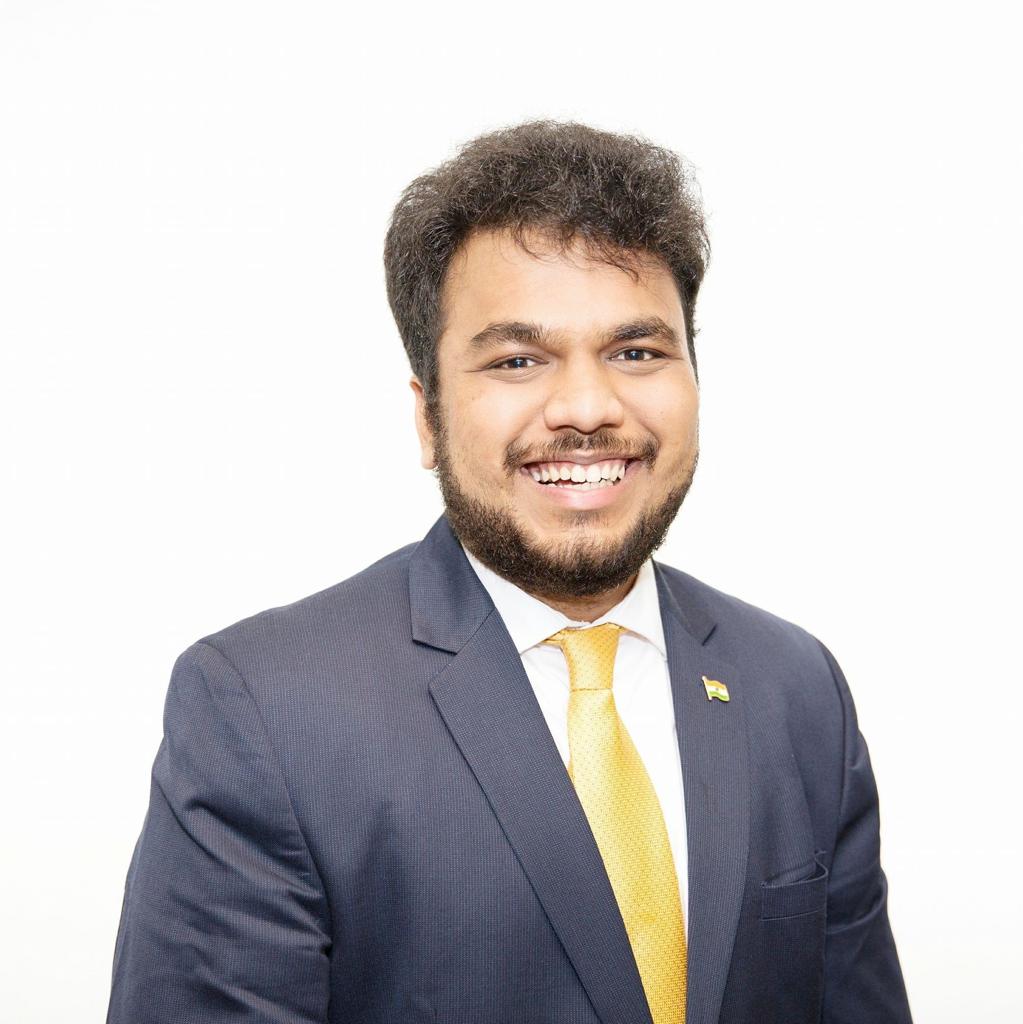
Dr Namit Choksi
Of crisis and transformation
“There’s a whole lot more to racing than just winning.” A line from a children’s movie Cars became a turning point in Namit’s life. Just out of medical school, he was going through a “tough six months” back home in Mumbai. “I had lost faith in myself,” he says. After years of hard work – he recalls eighteen-hour days spent “living at the library” as he prepared for his entrance exam – even a single failure was a huge blow.
Then one fateful day, his sister walked in to his room, quoting Tex Dinoco, the 1975 Cadillac Coupe de Ville in the film Cars. Years later, as he arrived at the interview round as an aspiring Schwarzman Scholar, he took from his pocket (surprising even the formidable jury panel that included the then CIA director), a Tex toy, saying, “There’s a whole lot more to racing than just winning.”
“That quote had a huge impact on me,” he says. “I started applying to colleges in the US and I got into Harvard, Yale and the other Ivy Leagues with scholarships.” Namit picked Harvard, where he studied public health policy and management. It was a calculated choice – although he enjoyed clinical medicine, he “felt restricted within a hospital. I wanted to create an impact that scaled beyond being a doctor, although that is an incredible profession in itself.”
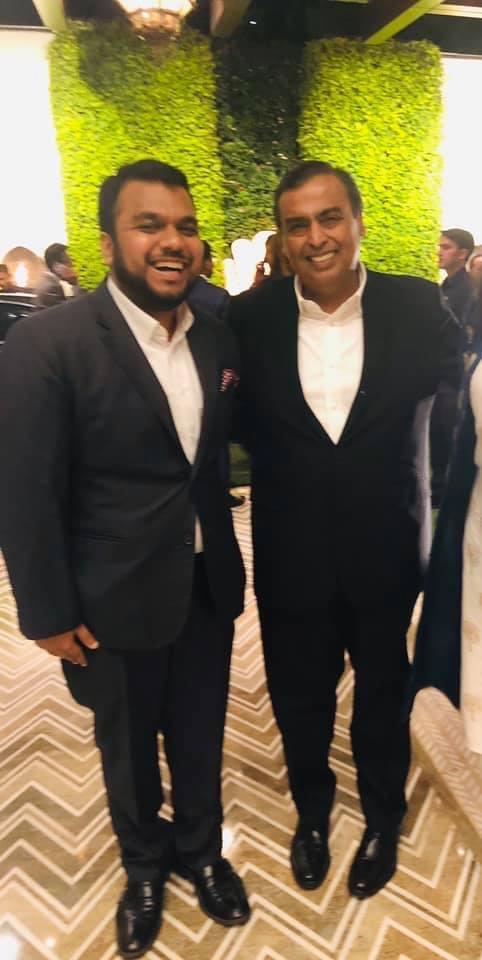
Namit with Mukesh Ambani
Backed by an encouraging dean, Namit was selected as a student leader in Pune and shared the stage with the Dalai Lama and Congress leader Shashi Tharoor. He was also part of the G20 Youth Summit held in Petersburgh, during his time as youth advisor to then Prime Minister Manmohan Singh, where he was given the chance to submit policy recommendations and serve as the head of state for India. As part of the global youth diplomatic forum, he trained with ambassadors and even shadowed David Cameron, who was Prime Minister of the UK at the time. “We dealt with issues like women in conflict and medical conflicts.”
Harvard calling
‘Fail’. It’s the point of no-return, usually, for students looking to be in Ivy League colleges. And as Namit struggled to find faith in himself after being failed in one subject in medical school, he found no lack of naysayers telling him to aim lower and stick with tier 2 universities. He refused to entertain the thought: It was to be Ivy League or nothing. What followed is, perhaps, an indication of many differences between the education systems in India and the United States. “At Harvard, I wasn’t held back by an ‘F’. I was asked to explain why it happened,” he said.
At Harvard, he helped design a cost-effective solution for bacterial vaginosis, a project he says has huge potential socially. “It’s often mistaken for an STD, especially in developing countries and is often a cause for domestic violence,” Namit says. “The spouse also requires treatment, which is rarely sought.”
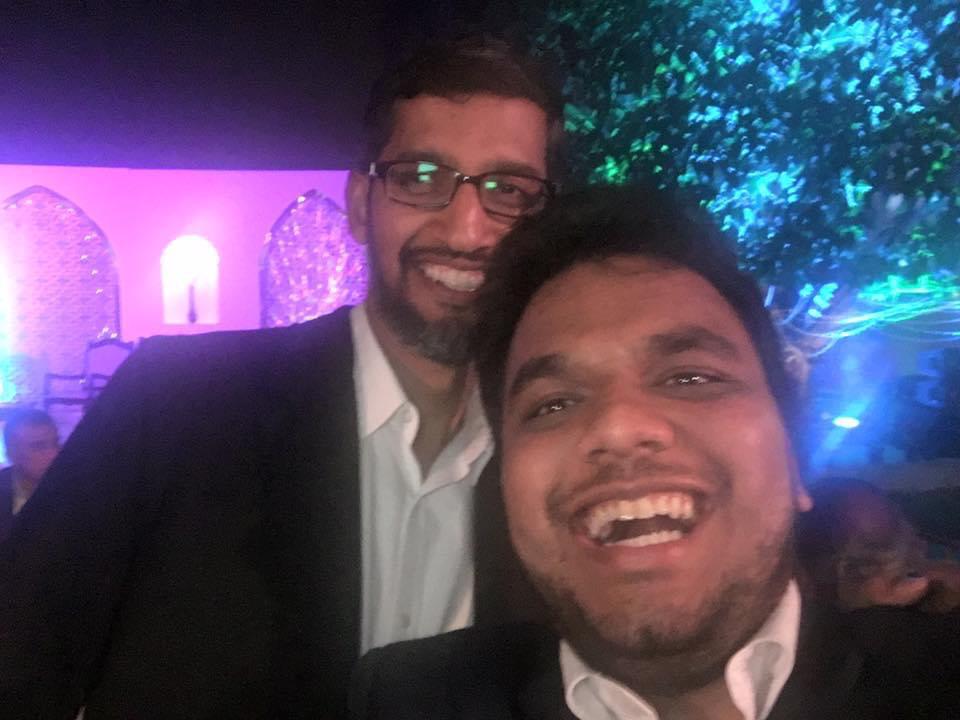
Namit with Alphabet Inc. CEO Sundar Pichai
He also continued to work with the Indian government – the Ministry of Railways – where he worked with former railways minister Suresh Prabhu on the ‘Lifeline Express’ – India’s first hospital train. “It was a huge learning experience,” Namit says. “Suresh ji had done a lot – he was the one who revolutionised Twitter for the railways. You could tweet a complaint on a train and cops would arrive at the next station. It was a merging of tech with government services.” When Suresh Prabhu moved to the Ministry of Commerce, he took Namit with him, to bring foreign direct investments within the healthcare sector.
Once Upon a Time in Beijing
The same year he headed off to Tsinghua University in Beijing’s Forbidden City as a Schwarzman Scholar. Fascinated by China, he went there with an aim – to learn how to develop cutting edge technology to bridge access to modern healthcare. “Apps like Pharmeasy are doing this already,” he states.
“In the US, healthcare is super expensive. China has a replicable model for India because although their economy is larger, the per capita healthcare expenditure is about on par with India, especially with schemes like Ayushmaan Bharat coming in now,” Namit explains who began working with Northern Venture Capital, first as a summer associate and then full-time. Unfortunately, geopolitical tensions and hostile takeovers on the Indo-China border put paid to his plans when the Indian government put strict controls on Chinese investment.
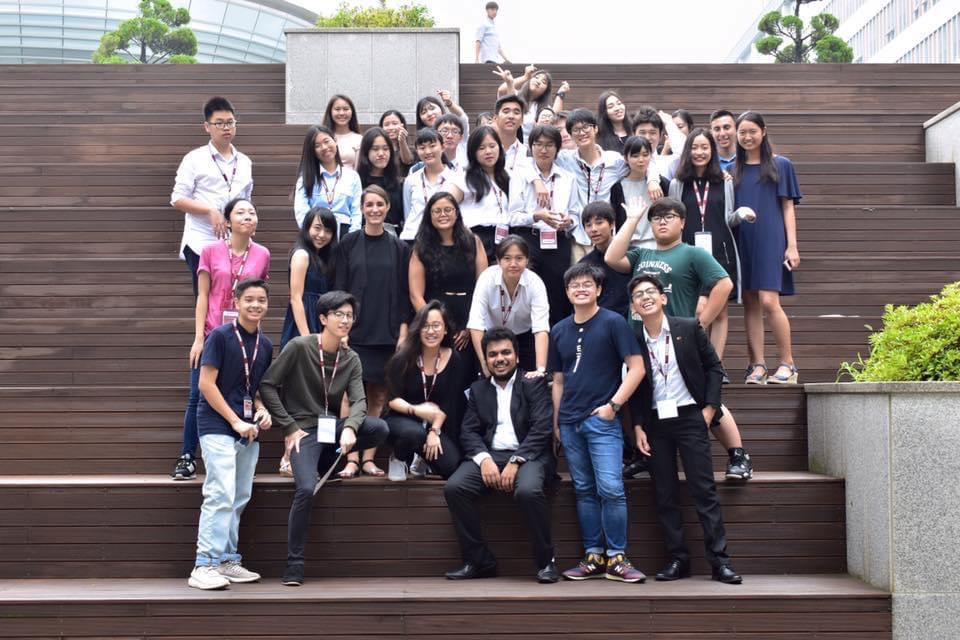
“I’m grateful to Harvard and to Schwarzman,” Namit remarks. “How often does one get the chance to meet Madeline Albright, or have a meal with John Kerry, or have dinner with Mukesh Ambani?”
The pandemic
When Covid-19 hit and pandemonium reigned across the globe, healthcare professionals were faced with an unprecedented challenge. All forms of treatment were experimental. That’s when the Indian Council of Medical Research undertook what would be one of Asia’s largest clinical drug trials, examining the effectiveness of plasma in the treatment of Covid-19. Namit, who was part of the ICMR’s research, had asked himself, “If I can’t be a doctor now, then when? And we were all fighting in the dark because the protocol was changing every day.”
Namit found himself in contact with Dr Harsh Vardhan and Dr Soumya Swaminathan, the Chief Scientist at WHO, who he calls a close mentor. “I would reach out to her and request her opinion on a new drug, for instance and she would say, there’s no harm in trying it. At that point, we were mixing and matching to see what worked. My biggest regret is our failure during the second wave. I have seen people gasping for breath without oxygen. I realised there was no way we could have prepared for something like this, when our healthcare expenditure is 1.95 percent of the GDP.”
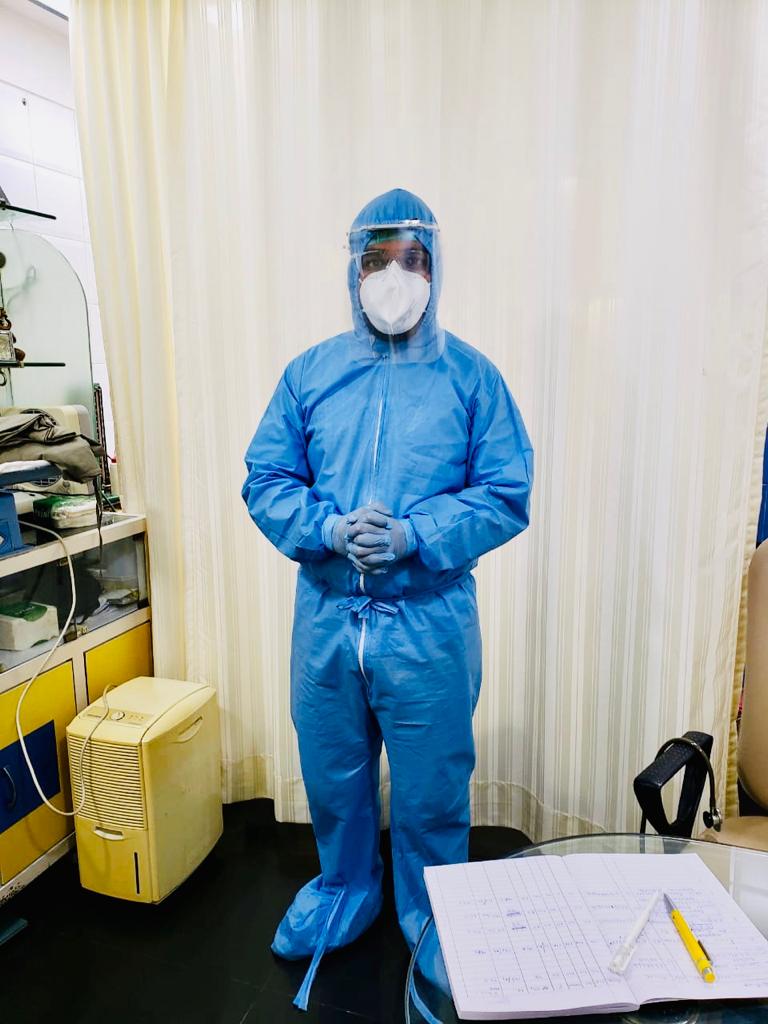
Perfect Day: ‘We’re making milk without cows’
Namit currently works at Perfect Day, a US-based startup that manufactures milk and dairy products through precision fermentation. “We’re making milk without cows, basically,” he explains. This is done by borrowing the genetic sequence from a cow and encoding it into small fungi where it is allowed to produce milk protein. “We have reduced greenhouse gas emission by 97 percent in the process,” says Namit, who is the head of Growth & Strategy (India & APAC).
Over 100 scientists work out of Bengaluru for Perfect Day which is also branching out into animal-free gelatin and artificial sweeteners. “We’re bullish on the idea of India,” says Namit.
The Journey back home
“The goal is to come back home and run for office,” Namit says, without pause. He doesn’t just mean the sometimes morally-questionable machinations of politics, though. “There’s a difference between public policy and politics and the goal should always be the former,” Namit remarks. “Right now, we have policy makers who know a lot about policy and politics but not healthcare. We have doctors who know medicine but not policy.” This is the gap he hopes to bridge, by “being in the highest levels of government. I want the ability to fight for the greater good.”
- Follow Namit on LinkedIn



